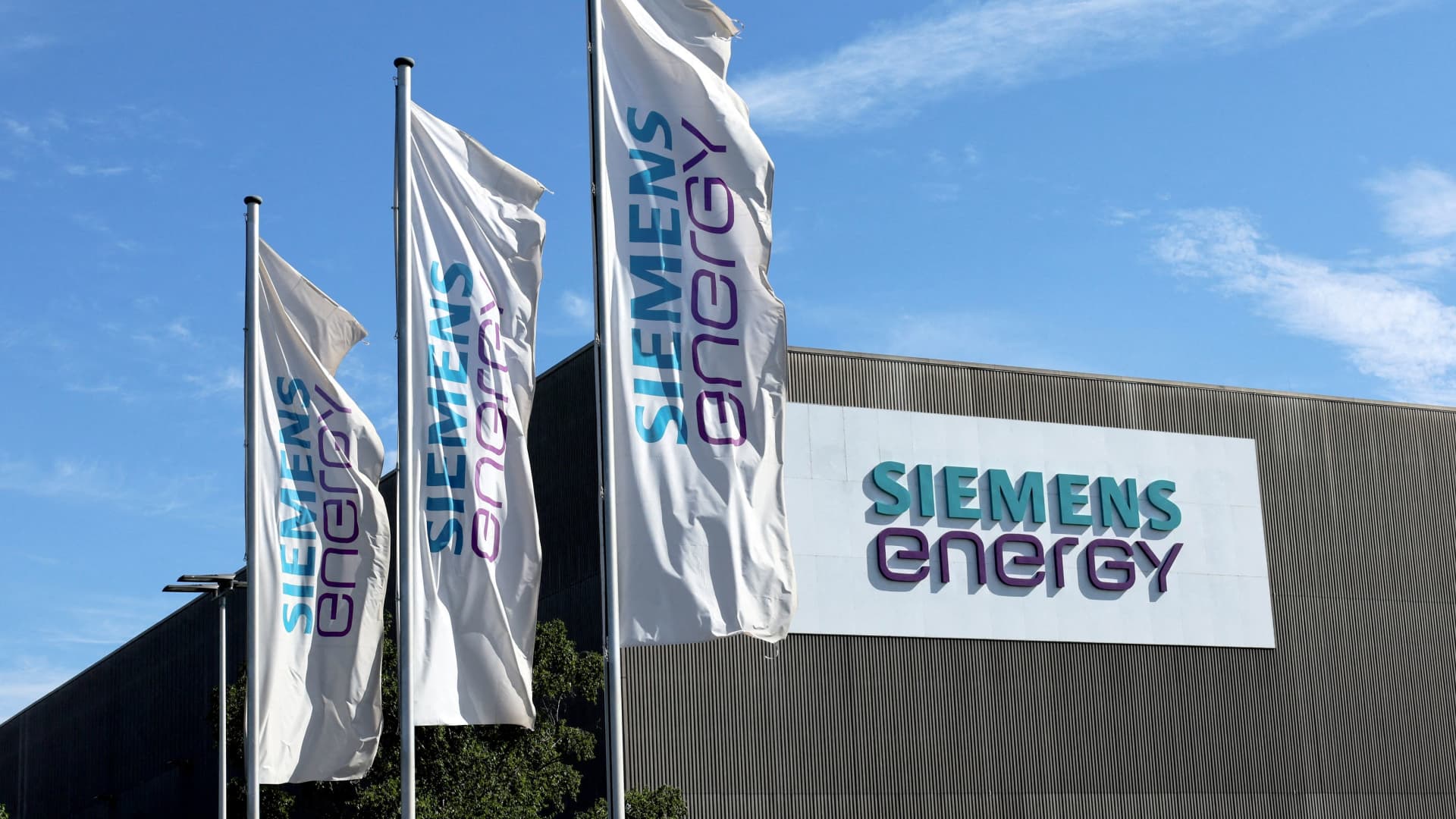Siemens Energy site in Muelheim an der Ruhr, Germany, August 3, 2022.
Wolfgang Rattay | Reuters
Siemens Energy has secured 7.5 billion euros ($8.15 billion) in project-related state guarantees from the German government, hours before announcing a nearly 5 billion euro loss for its fiscal year.
The German economy ministry announced late on Tuesday that it had granted the backstop as part of a wider package of 15 billion euros in guarantee lines agreed with banks and other stakeholders, following talks with private lenders and the company’s largest shareholder, Siemens AG.
Private banks will grant a guarantee line totalling 12 billion euros, while Siemens Energy will secure a further 3 billion from negotiations with other stakeholders, the ministry confirmed, according to a Google translation. The federal government will provide a proportional backstop of 7.5 billion to underwrite a significant portion of those guarantee lines.
Problems with manufacturing faults at its wind turbine subsidiary Siemens Gamesa led Siemens Energy to scrap its profit forecast earlier this year. The guarantees are intended to insure the company’s customers on prepayments and execution of contracts in order to shore up its huge 112 billion euro order book.
On Wednesday, the company reported an annual net loss of 4.6 billion euro for its fiscal year, compounded by a fourth-quarter net loss of 870 million euros. It said it would review the structure of Siemens Gamesa after the beleaguered wind turbine unit exacerbated this result.
The company denied the fiscal guarantees constitute “state aid,” with Siemens Energy CEO Christian Bruch telling CNBC on Wednesday that there is no cash involved.
The business will “pay money for these back guarantees, so it is like an insurance package,” he stressed.
“These guarantees are meant to back-secure customers in terms of prepayments, execution of contracts and so forth, so it’s a relatively normal instrument in the industry,” Bruch said, adding that the scale of Siemens Energy’s 112 billion euro order book meant the market was naturally concerned about “cluster risk.”
“This is why this package was needed and we are very grateful for the government for structuring it together with the banks and Siemens AG support, but it’s also I think [it is] really really important that people understand that this is not cash and this is also under European law, this is not state aid or anything like this,” Bruch told CNBC’s “Squawk Box Europe.”
“It is important to continue the growth and the guarantees will largely go to the grid business, to the other non-wind businesses to secure this enormous growth that comes with the energy transition.”






